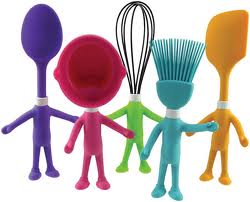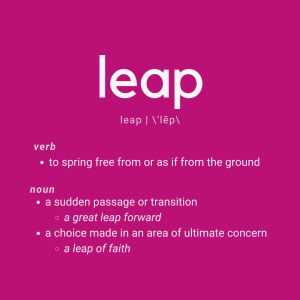I wrote this piece a year ago. I just had the same experience last week – different group, different profession, same problem.

Last week I listened to a group of professionals talk about their work. They are all lawyers by training, but that’s not what they do for work. I was asked to give my two cents on managing change and having difficult conversations with coworkers. I’ve been known to have an opinion or two in these topics, so I did what I could to help.
What struck me about listing to them was how we can all limit ourselves in our interactions with others depending on what we perceive our roles to be. These talented, engaged people who are well versed in managing multiple pieces of evidence in disputes, seemed to forget that they can use those same skills when trying to problem solve with coworkers – even when the topics are seemingly mundane issues of lunch breaks and vacation schedules. Many people in this group thought one way about doing their “jobs” and another way about dealing with coworkers. It did not occur to them that they could integrate skills from one arena to another. Interpersonal situations seemed to limit their recollection of the skills they had to work with. The relationships they have with coworkers are seen as fundamentally different than the work they do.
This is a problem I see with the idea of separating Work from Life. It forces separation of parts of one’s self. You might be very good at negotiating contracts at work, but when it comes to dealing with your parents or siblings, you may forget that those skills might come in handy trying to figure out who is going to host the holiday meal.
Here’s what many people think of that, “I can’t do the things I do at work when I’m at home; my family would hate me!” Do your co-workers hate you? If they do, your behavior is the problem, not your skill set.
We are talking about your skills. I’m not advocating that you start bringing “work” home with you or that you should start relating to our coworkers like you do your immediate family, or that that you use your skills to the same degree from one setting to another. Just begin to think about ways you can make use of the things you do well and how you might apply those skills in multiple situations.
Skills are tools to be used anywhere – that doesn’t mean they are always used in the same way. Example: you might be a really great cook – Cordon Bleu level of wonderfulness. You use the same concepts in cooking when you are cooking an egg for your 3 year-old nephew’s breakfast as you do cooking an egg in an elegant brunch you’re preparing for your new in-laws. It’s the same skill used in a different setting.
I can hear the resistance: but I don’t want to have to do what I do at work anywhere else! Ok. You don’t have to.
What I’m suggesting is that you think about the tools and skills you have at your disposal. What are you good at in your work? What are you good at in your hobbies? With family? And, most importantly in the relationship to Work and Health, what skills make you feel the best when you use them? Think about it.
What do you do well and enjoy doing? Do you use that skill in many ways? Are there ways that you never thought of using it? Can you describe how the integration of a skill (negotiation, scheduling, communicating clearly, adding a sense of playfulness to challenging projects, etc.) might help you feel better in multiple situations? By starting to think about ways we can integrate the parts of our lives that really work well and that we enjoy, we start supporting our Work and our Health.





